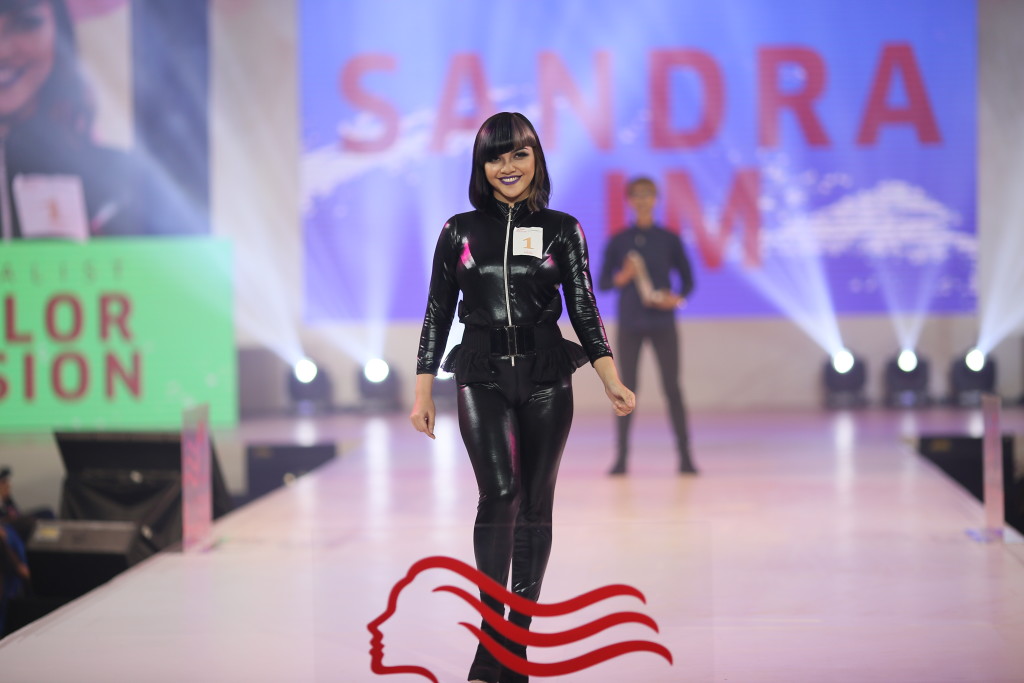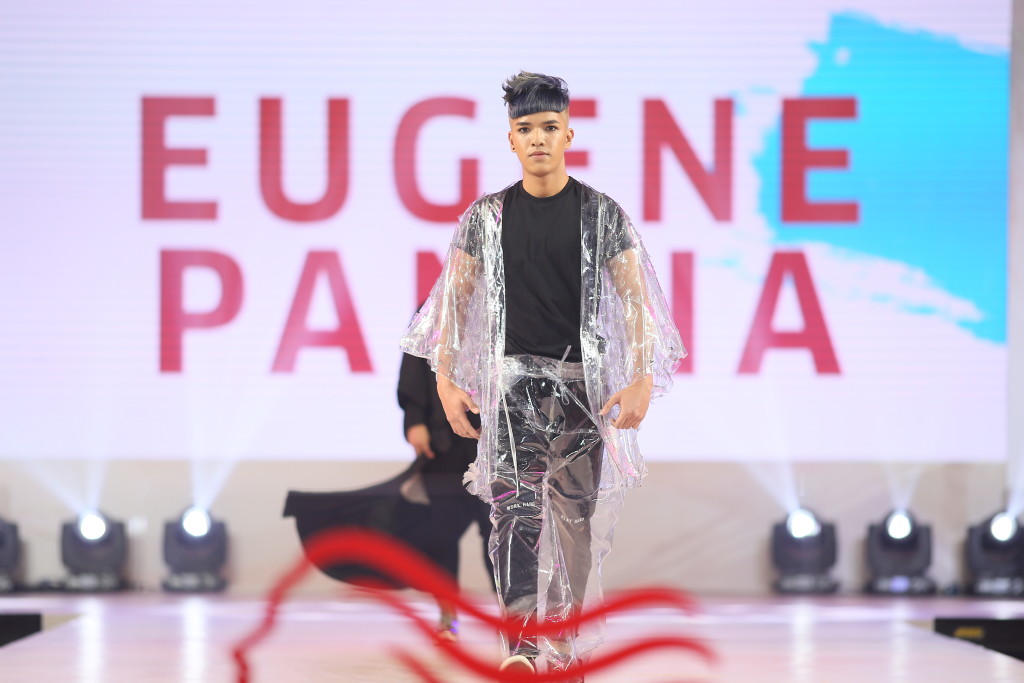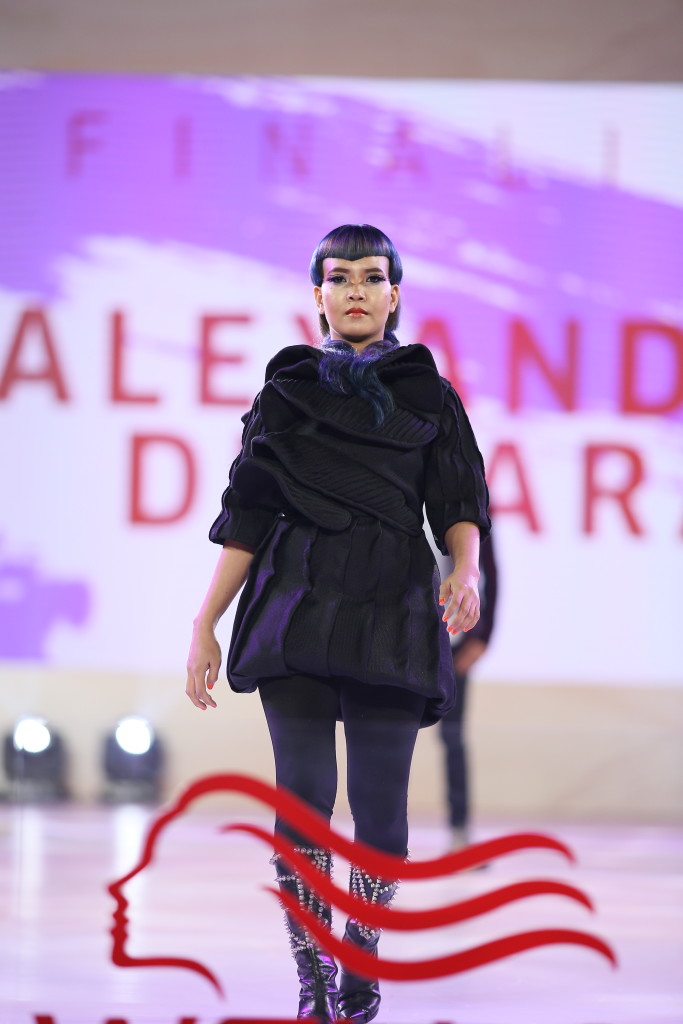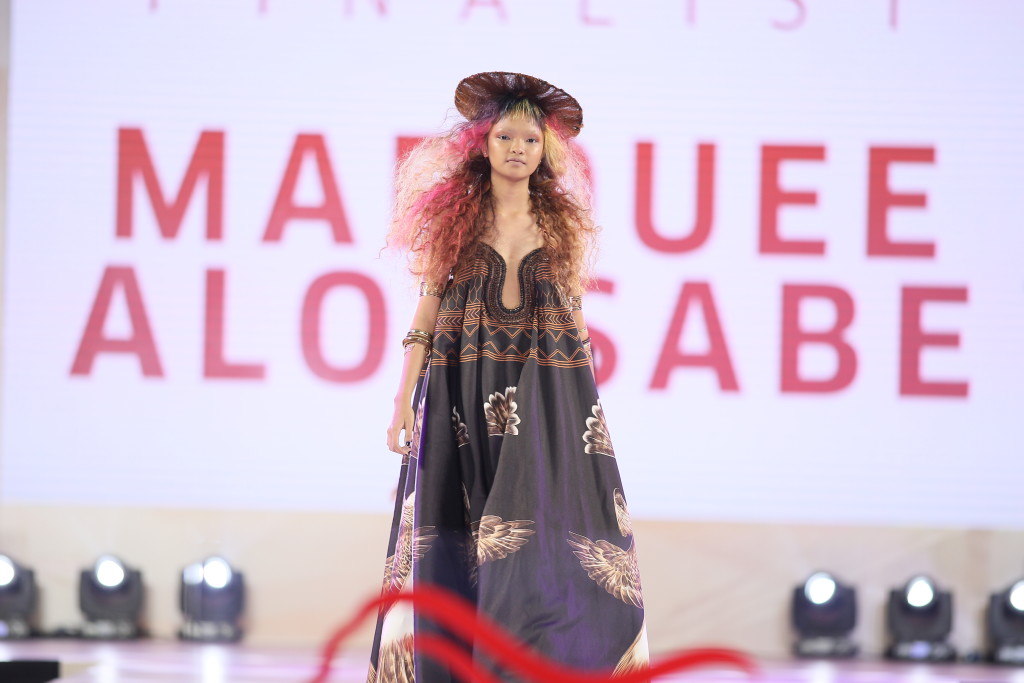The 138-year-old brand is always on the lookout for emerging hair trends, including current shifts involving facial contouring and “breaking lines with monochromatic highlights and lowlights to bring out a client’s facial features.”

By Alex Y. Vergara
It wasn’t just a whimsical attempt to make guests wear shades other than black. Wella, which recently staged its second National Trend Vision awards at the Shangri-La, at the Fort, asked its guests to come in the brightest “colors” because color is what the 138-year-old brand is all about.
The local contest featuring the Philippines’ top hairstylists and colorists was able to produce during its first year a Filipino winner who took home silver in a crowded and competitive field of contestants from more than 80 countries in the competition’s international edition. The same contest has been staged for decades in other countries where Wella also has a presence. This year’s entries, as modeled by pros on the ramp, were no less visually exciting.

Now part of Coty’s professional division and exclusively distributed locally by Right Goods Philippines Inc., the Wella line of “professional beauty products,” said Rui Yuan Chen, general manager, South East Asia and Korea, of Coty Professional Beauty, aims to “elevate the hairdressing industry” through a number of steps that “make up the full recipe.”
“This year, we will be doing it differently,” Chen added, referring to the experience that awaits this year’s two gold winners in the Color Vision and Creative Vision categories. “Last year, we flew the winners to an international competition. This time, it will be more of an immersion for them. The experience is something money can’t buy.”

And such an immersion doesn’t happen just anywhere. As part of their prize, the two gold winners will be flying to colorful Lisbon, Portugal this October to join their winning counterparts from other countries in a two-day creative retreat.
“Color is such a big part of our lives,” Chen explained. “It’s something we at Wella are passionate about. To choose the most deserving winner in a very competitive field, the finalists’ entries (on actual models) have already undergone judging earlier in the day.”

A top global artist would be in Lisbon to challenge the winners not only to improve their craft, but to take it to the next level. And this year, the two gold winners from the Philippines are Jeffrey Gabo (Color Vision) of Salon Privat by Jing Monis and Yvette Braga (Creative Vision) of La Provence BGC.
Rounding out the list of winners in the Color Vision category are Sandra Lim, silver, Sandra Lim Salon; and Eugene Pantia, bronze, Folded & Hung Salon, Greenhills. In the Creative Vision category, Alexander de Lara of Jing Monis Salon, Alabang won silver, while Marquee Alonsabe of Jing Monis Salon, Quezon City bagged bronze.

This year’s judges are regional superstars in the field of hair color and styling: Jaron Lu; Chaya Mahtaney; San-Tsai Sun; Ranida Athiporntara; and Chia-Jung Lin for the Color Vision category. In lieu of Lin, Po-Chen Chin joined the same group in choosing winners in the Creative Vision category.
As far as the enduser is concerned, Wella’s ultimate goal is not only to set trends in hair coloring, but also to provide consumers with the best products in their quest for “personalized and bespoke styles.” More than being simply an extension to sell their products to consumers, the brand sees stylists and haircare professionals as its partners in helping it achieve this goal.

For Wella, elevating the hairdressing industry means providing its partners with, one, the right tools and right products and, two, encouraging them to tap into their creativity in order to fully unleash their imagination.
“Education is one of the keys in the craft, in bespoke transformation, which we share with professionals. These pros, in turn, are expected to express the best of what they learn from us on clients to make them feel different, make them feel better,” said Chen.
In terms of trends, Wella is always on the lookout for emerging local, regional and international trends, including current shifts to so-called “nontouring” techniques, which, according to Chen, are basically about facial contouring and “breaking some lines with monochromatic highlights and lowlights to bring out (a client’s) facial features.”

This trend, he continued, is an offshoot of “ultra personalization.” Gone are the days when clients decide for themselves or insist on the latest trends. Wella, which offers a number of sub-brands across a wide category, maintains that clients need to be guided by professionals in their choice of hairstyles and colors.
Apart from facial structure, skin tone and hair texture, he/she should also consider his/her lifestyle. What would work, say, for a more outdoorsy or sports-minded person would probably fail for someone who stays indoors most of the time.
As a global company and brand, respectively, Coty and Wella are also on the lookout for their customers’ needs in each market or region they’re present in. Chen, for instance, will soon be bringing Illumina Japan, a brand under Wella, which is specifically designed and created for Asian hair, to the Philippines during the third quarter of the year.
“Asian hair generally has a darker base,” he said. “We’ve asked top stylists in the region to use Illumina Japan on some of their clients and their feedback has been amazing. Apart from Japan, the brand is doing very well in Korea.”
Finally, as far as the Philippine market is concerned, Wella, instead of displaying its products on supermarket shelves, has chosen professional hairstylists and colorists working in salons as their partners to introduce and use the products on consumers. Gone are the days when Wella products, from shampoos to hair colors, moisturizing treatments to grooming aides, were displayed in malls and groceries, and within reach of consumers.
It’s quite understandable for perming and hair-coloring products to fall under the purview of highly trained people in the know, but even Wella’s range of shampoos, conditioners and hair-grooming products are sold through salon-based professionals. There’s a reason for doing so.
“Our products are made from the highest quality ingredients and processes,” said Chen. “They require technical expertise from a trained or educated professional for a client to know what products to use, when to use and how much to use.”
A seemingly simple product, for instance, like shampoo isn’t that simple in Wella’s book because you need a professional to assess and understand your hair if it’s chemically treated or not, fine or coarse, etc.
“Is your scalp oily or do you have a dandruff problem? For post-coloring, for the first two weeks you should use a specific shampoo for color-treated hair, but after that you could shift to something different depending on what your hairdresser would recommend. These are things you don’t learn from [ordinary salespersons manning] the shelves,” Chen added.
Such a business model is a sure way to lose out on supermarket presence. That’s why Wella has partnered with the likes of RGPI whose thorough knowledge of the local market allows the brand to expand and improve its distribution among many of the country’s top salon owners and, in Chen’s words, “educated” stylists “who are capable of surprising and delighting their clients.”






